 Forbidden fruit? The serpent said How quaint the notion in your head! But modern thinkers now opine Restrictive diets may incline Towards repressive attitudes So from our moral altitude This fruit is good, you may include It in your list, it may be chewed Just go ahead and feast your eye On what’s not yours, go gratify And please yourself, do not restrain Your hunger, just go stake your claim My freedom now! Declare your rights Do not frustrate your appetites The earth is yours and all it holds There is no law, go on, be bold And so we sold our souls for dross Our innocence for candy-floss We traded in our naked joy Gave it to him who would destroy Our place in paradise we lost Our mortal lives now count the cost Squandered, Lord, your precious gift Wandered, Lord, you felt the rift With thorns and tares you cursed the ground With thorns your sacred head we crowned With tares the earth its crop would yield With tears mankind would plough the field Beneath the tree the crime was cursed Upon the tree it was reversed For in the cursed ground you lay Then rose and blessed the rising day Beside the waters from the throne The tree of life now fully grown Has healing in its fruit and leaves No pain, no shame, no-one who grieves No curse, no night, no need for light The Lord himself will reign in might And we shall see his glorious face This King of glory, full of grace © Neil Rogers 2022 wojazwamblings.co.uk Josiah reigned in royal pride
While Zephaniah prophesied From every nation, west to east The Lord will sweep both man and beast Let every idol turn to ash Let every totem fall and crash Let those who worship sun and moon Fall silent as they meet their doom The Lord prepared a sacrifice A day when men shall pay the price For turning from the Lord Most High To worship beasts and birds that fly The princes shall be brought to nought The traders who have sold and bought But gave the Lord no passing thought Shall give an answer in God’s court That day will be a day of grief A day of truth, not unbelief A day of anger, ruin, trouble Jerusalem reduced to rubble Your precious houses turned to dust Your wealth in which you put your trust Your vineyards where you drank your wine All burned to ash in that dread time Like blind men seeking for some hope The bloody wounded limp and grope In search of healing for their grief But on that day there’s no relief. Before the coming of that day Come, seek the Lord, do not delay Before the wrath of God is shown Before all nations weep and groan With humble heart, come seek the Lord In him find shelter from the sword Before that dreadful day of grief Come seek the Lord and find relief Nowhere to run, no place to turn Stand, watch God’s righteous anger burn You seaside cities, start to weep You shall be pasture for my sheep Across the Jordan, Moab’s pride Shall be laid waste and cast aside In Ammon, Cush, Assyria Destruction and hysteria Your citadels of revelry Your insults and your devilry Shall turn to silent sobs of pain For none shall build you up again In Nineveh wild beasts shall prowl A haunt for jackals, perch for fowl And every passer-by shall mock At Nineveh, the laughingstock Jerusalem! Jerusalem! This prophecy’s not just for them Jerusalem, don’t be deceived This word of God must be believed With God no partiality Excuses your iniquity When every nation gives account The witness stand you too must mount Then from all corners of the earth My worshippers with holy mirth Shall gather to Jerusalem The scattered shall be gathered then The humble and the meek shall dwell So, shout for joy, Oh Israel Then fear, deceit and anxious pride Shall cease, shall stop, be laid aside The Lord has taken all your guilt Jerusalem shall be rebuilt The Lord, your God, your mighty King Delights in you and he shall sing A love-song full of joy, so sweet The lame come dancing in the street Come home, my people, come to me And I shall fill your hearts with glee Your honour then shall be restored My blessing shall replace the sword And on your fortunes you shall gaze Your King shall always be your praise The Lord will set rebuke aside The Lord is always by your side No harm shall ever make you fear The Lord is by your side, so near © Neil Rogers 2023 John Calvin, the second hero of the Reformation after Martin Luther, is most famous for his emphasis of the doctrines of the sovereignty of God and of predestination. Calvin's Institutes of the Christian Religion came out first in 1536, nineteen years after Luther's 95 theses, and underwent 4 revisions until the 5th edition was published in1559. Mnemonic devices or aides-memoires can assist in the remembering of important information and the most common way to remember the essentials of Calvinism is the acronym of TULIP which stands for: Total depravity Unconditional election Limited atonement Irresistible grace Perseverance of the saints Nowhere in Calvin's Institutes do these expressions actually appear, but nevertheless people pick and choose what they agree or disagree with from these five tenets and maybe describe themselves as 5-point Calvinists or 2-point calvinists etc. There are 28 different ways to choose (None, T, U, L, I, P, TU, TL, TI, TP, UL, UI, UP, LI, LP, IP, TUL, TUI, TUP, TLI, TLP, LIP, TULI, TULP, TUIP, TLIP, ULIP, TULIP) which provide well-picked bones of contention over which the people of God have divided into far more than 28 different reformed denominations. Calvin's own warning to those who think that the doctrine of predestination can be easily comprehended by the human mind is often ignored: 'First, then, when they inquire into predestination, let then remember that they are penetrating into the recesses of the divine wisdom, where he who rushes forward securely and confidently, instead of satisfying his curiosity will enter an inextricable labyrinth.' Personally I prefer DAFFODILS, much more elegant flower which stands for: Dead in sin Rom 6:23 Alive in Christ Rom 6:8 Free gift Rom 5:15-17 Fully effective Rom 5:18 Once and for all Rom 6:10 Divine Initiative Rom 5:6-8 Living Sacrifices Rom 12:1-2 LS can also stand for loving servants (Rom 12:3-21) and loyal sitizens (Rom 13:1-8). You read it first here! The king of Egypt said to the Hebrew midwives, whose names were Shiphrah and Puah, “When you are helping the Hebrew women during childbirth on the delivery stool, if you see that the baby is a boy, kill him; but if it is a girl, let her live.” The midwives, however, feared God and did not do what the king of Egypt had told them to do; they let the boys live. Then the king of Egypt summoned the midwives and asked them, “Why have you done this? Why have you let the boys live?”
The midwives answered Pharaoh, “Hebrew women are not like Egyptian women; they are vigorous and give birth before the midwives arrive.” So God was kind to the midwives and the people increased and became even more numerous. And because the midwives feared God, he gave them families of their own. (Exodus 1:15-20) Its appears that God rewarded the Hebrew midwives for their dishonesty. Under what circumstances might lying ever be justified? We tell our children that honesty is the best policy, that telling the truth is always the right thing to do and that deception is sinful. What have the great thinkers of the ages said about lying? Moses: You shall not bear false witness against your neighbour (Exodus 20:16) Confucius: It is good for a son to lie to protect his father Plato: Lies are permissible in war, in jest and to avert evil Jesus: I am... the truth the truth will set you free (John 14:6, 8:32) Paul: Let God be true though everyone were a liar (Romans 3:4) Augustine: It is permissible to conceal truth in order to save life Mohammed: Lying leads to wickedness and wickedness leads to hell fire Aquinas: Telling the truth with intent to deceive is worse than lying Kant: To be truthful in all declarations is a sacred command of reason Nietzsche: All words fail to represent reality truthfully and are, therefore, lies Bonhoeffer: Anyone who tells the truth cynically is lying “What is truth?” asked Pilate (John 18:38). Many legal systems depend on an oath similar to: “I promise to tell the truth, the whole truth and nothing but the truth.” However, no-one has “the whole truth”, therefore whoever claims it commits perjury before they have given evidence. Our access to truth is at least provisional. So what possible defence can be made? It is axiomatic that mortals cannot comprehend the immortal nor the earthbound measure the transcendent (Isaiah 40:21-31). A god worth calling God must have secrets (Deuteronomy 29:29) and thoughts beyond human imagining (Isaiah 55:8-9). By grace, human shame is concealed under garments (Genesis 3:21) and divine glory under a towel (John 13:4). Such a God hides gold in a garden (Genesis 2:12), hides wisdom among the ants (Proverbs 6:6), hides a baby in Egypt (Exodus 2:1-10, Matthew 2:13-15), hides all the treasures of wisdom and knowledge (Colossians 2:3) in a carpenter (Mark 6:3), hides the gospel in parables (Mark 4:11), hides himself as a servant (Philippians 2:1-6) and hides treasure in jars of clay (II Corinthians 4:7). It is the glory of God to conceal things, but the glory of kings is to search things out. Proverbs 25:2 Such a God wrestled with Jacob and refused to disclose his identity (Genesis 32:22-32), such a God rewarded Hebrew midwives for speaking untruth to power (Exodus 1:15-21), such a God instructed Moses to ask for a fictional three-day excursion into the wilderness (Exodus 3:18), such a God protected Rahab the lying prostitute (Joshua 2, 6:22-23) and such a God encouraged Samuel to disguise his intent to anoint Jesse’s son by arriving under a cloak of sacrifice (I Samuel 16:1-3). God incarnate instructed his followers (and his enemies) to conceal his true identity until they grasped his agenda (Mark 3:12, 5:43, 7:36, 8:26, 9:9), or until the right time had come (John 12:23). He said to his brothers, “I am not [yet] going up to this feast” - but then attended en krypto in secret (John 7:8-10) before revealing himself in a loud voice (John 7:37). There is a time to be silent and a time to speak (Ecclesiastes 3:7). By gradual disclosure God allows his image-bearers to “search things out.” Jesus warned his disciples that taking the gospel to new places would expose them to dangers, like sheep in wolf-country they would require dove-like innocence and serpentine shrewdness (Matthew 10:16). God does not lie but brings the concealed things to light at the appointed season (Titus 1:1-3) and ultimately nothing will remain concealed (Matthew 8:17). But in the meantime, en krypto is a strategy with precedent. For who among us has not wrapped a gift to disguise its contents? Cross-cultural communication of the gospel is an exercise in gift-wrapping. The gift is eternal life (Romans 6:23) and we should desire with Paul to renounce underhand ways and means and speak plainly in so far as we can. For we are not, like so many, peddlers of God's word, but as men of sincerity, as commissioned by God, in the sight of God we speak in Christ (II Corinthians 2:17). But we have renounced disgraceful, underhanded ways. We refuse to practice cunning or to tamper with God's word, but by the open statement of the truth we would commend ourselves to everyone's conscience in the sight of God (II Corinthians 4:2). Who is sufficient for these things? (II Corinthians 2:16) The many people Jesus healed
His glory and his pow’r revealed. The blind, the deaf, the mute, the lame Now saw and heard and spoke his name. 'Who sinned to close this blind man’s eyes?' Jesus replied to their surprise That no-one sinned, but when he sees God’s glory shall in him increase. Then Jesus spat upon the earth And just as at creation’s birth 'Let there be light!' was his command Fresh eyes he fashioned from the sand. And sent him off to wash his face He then returned brimful of praise. The Pharisees rose and detained The man born blind and Jesus blamed. This healer cannot come from God, He breaks the Sabbath which is odd. We don’t believe this man was blind. They called his parents who declined To answer on this hot subject. The diagnosis was correct. We know not how he came to health, But he can answer for himself. The feisty man was in no mood To tug his forelock, so he stood And listed off a catalogue Of follies of the synagogue. They drove him out, for he could see Right through their vain hypocrisy. And Jesus went and found the man Who worshipped him, the Great I AM. Then Jesus’ friend at Bethany Fell sick and died. Catastrophe! The Lord came late and all seemed lost. Did he not care about the cost? The sisters ran and wailed and cried 'Where were you? He need not have died!' Then Jesus wept before the tomb, The stench of death before him loomed. Then heavenward he raised his voice, His tone now changed as he rejoiced. 'I thank you, Father, that you hear, You conquer death and vanquish fear. Come out, my friend, vacate the room! Your time will come, but now the tomb Is warned, the Prince of Life has come, The grave must crack and death succumb.' Then Lazarus came out the tomb. 'Unbind him from his death cocoon, Release him from the grip of death. Like Adam let him draw fresh breath.' The wailing stopped and joy outpoured And fellowship was now restored. Then friend and Saviour sat to eat And Mary sat at Jesus’ feet. (c) Neil Rogers 2022 wojazwamblings.co.uk Dear ICB,
On Sunday I argued that being humble means that you think of yourself rightly. It means that your assessment of your worth matches your actual worth. Genesis helps us understand how we as human beings should understand our value. Truths to Rightly Assess our Worth First we were created. Just like the worth of a carpenter is infinitely more than the worth of his table, so, too, is God's worth infinitely above ours. Second, humanity was created to stand at the very top of God's creation. No other work of God's creation was made in his image or with the ability to be inhabited by his infinite Spirit. Third, we've destroyed our value by plunging ourselves headlong into sin. We've degraded ourselves to a despicable degree. Fourth, God has no intention of leaving his image bearers in the depths of their sin but sent his Son to pull them out, clean them up, fix them, remake them, bring them into his family, make them co-heirs with his Son, and restore them to the position that he designed them to hold in the first place. Our future glory will be even greater than that original glory we were meant to have, for now we will also display God's glorious grace for all eternity! All four of those truths must be understood rightly if we as human beings are ever going to properly understand our worth and therefore live humbly before God and others. A Little More Specific On Sunday, I stayed at a very general level—the level of humanity. We could take this thought a step further, a step toward the more specific, and apply it on a more personal level. The principle remains the same: Those who are humble think of themselves with sober judgment. That is, their conception of their importance and value matches their actual importance and value. This applies not only when we think of ourselves corporately as members of the human race but also when we think of ourselves as individuals. Even before sin entered the world, it is clear that no single finite human being living alone is capable of putting the nature of God on display for the world to see. It wasn't good for Adam to be alone. That's because God, though one, is not alone. Just as he lives in relationship in the life of the Trinity, he created humanity to live in relationship too; thus God created Eve. That means that Adam's individual value in putting the worth of God on display is not as great as Adam and Eve's collective value in putting the worth of God on display. When a man and his wife live in relationship with each other in such a way that the very nature of the Trinity is seen, then they better image forth God's nature than if Adam were to have remained the only human on the planet. Properly reflecting the glory of God is on the line when it comes to how husbands and wives relate to each other. Adam and all individual human beings need to understand that about their worth. Even those individuals who have received the gift of singleness must understand that it's when God's people come together as a body that we better put God's glory on display than if we were to live alone in the desert all our lives. This naturally leads to how the New Testament talks about the gifts of the Spirit. Though every single child of God is sealed and anointed by God's Spirit, not every single child of God has received the exact same gifts of the Spirit. We're not clones. Equality does not mean sameness. God loves diversity. The Spirit gives each believer gifts as he sees fit. Using the analogy of a body, Paul says that some of us are eyes, some of us are ears, and some of us are noses (1 Cor. 12:17). The point is that we use what the Spirit of God has particularly given us for the good of the whole. This means that when we come to assessing our particular value as individuals, it's right to say things like, "I'm good at _____, and I'm not good at _____. I can contribute _____ to the body, but I need others to help me to _____." That is another part of what it means to be humble. Humble children of God see how God has put them together, understand what God has specifically entrusted to them, acknowledge the specific gifts that God's Spirit has given them, and are acutely aware of how they need others to complete in them what they themselves are lacking. Prideful people don't acknowledge that while they may be a really good ear, they are pathetic when it comes to seeing (to use Paul's metaphor in 1 Cor. 12 again). And prideful people certainly don't celebrate this fact. Prideful hands become envious and competitive when interacting with people who are much better feet than they could ever be. Furthermore—let's assume the bride of Christ is left-handed—prideful right hands don't celebrate the fact that their left counterpart gets to do the writing while they are left holding the paper so it doesn't move. This is not so among the humble. God designed us to need each other "that there may be no division in the body, but that the members may have the same care for one another" (1 Cor. 12:25). So after understanding who you are as a human being, the next question for you, believer, becomes, Do you understand who you are as an individual member of Christ's body? Do you rightly assess how God has sovereignly made you as one of his specific statues, or do you think more highly of yourself than you should? And are you capable of celebrating the fact that you, though perhaps an excellent nose, would run the body into a tree if you tried to do the job of an eye? How Do We Know? Answering that question would require another entire post. Suffice it now to say that when it comes to determining who you are, make sure you're listening to God and not deciding based on what you wish you were. And the beautiful thing is that we're not left figuring this out on our own. It is often true that others around us are much better at objectively recognizing if we make a better eye or a better ear. So get some guidance. Once you've begun to understand how God has made you as an individual, will you embrace it or reject it? Will you fan those gifts into flame, or will you throw a wet blanket on them and try to start your own fire? Being humble means recognizing and accepting how God has made you, not making that decision for yourself. "Create your own identity" is an often-repeated mantra of our day. It has nothing to do with biblical Christianity. Humble people rejoice at discovering the specific role God has assigned to them in this drama called the history of the world, and they rejoice at seeing others living out to the fullest the roles that God has given to them. In fact, they give themselves to helping them carry out those roles. And there's no envy or rivalry or jostling for a different role. There's only joy that God would give us a part at all. Oh, ICB, may God be merciful and grant us the gift of humility toward one another and before him under his mighty hand! Grace and peace, Pastor Eric by Pastor Neil
Sometimes narrative episodes come in pairs in the Bible, as if two stories were crafted on the same template. These two accounts of two sons of Jacob, Judah and Joseph, have many parallels and contrasts. On the surface the story of Judah and Tamar is a story of sexual incontinence and the story of Joseph and Potiphar's wife is a tale of sexual self-control. But the parallels go much deeper. Genesis 38-39: Judah goes down and lives among the Canaanites Joseph is taken down to Egypt Judah sets up business with Hirah Joseph is purchased by Potiphar Judah prospered with a growing family Joseph prospered and made his master prosper Judah makes an invitation to illicit sexual intercourse Joseph resists an invitation to illicit sexual intercourse Judah leaves behind his seal and its cord and his staff Joseph leaves behind his cloak Judah passes false judgement and Tamar is to be burned Joseph receives false judgment and is thrown in jail Taking a careful look at the scriptures, one can see that this happens quite frequently. We have seen this kind of parallel story-telling before: Genesis 27-29: Jacob disguises himself Leah disguises herself Tamar disguises herself Jacob puts on his brother’s clothing Leah puts on her sister’s clothing Tamar puts on different clothing Jacob steals his brother’s blessing Leah steals her sister’s blessing Tamar steals a blessing Exodus 13-17: Moses leads the people of Israel through the Red Sea on dry land Moses, in a dry land, brings water out of the rock for the people of Israel I Samuel 1-2: Elkanah’s dysfunctional family Eli’s dysfunctional family Mark 4-5: Jesus stills the raging storm Jesus silences the raging spirits John 3-4: Jesus meets a Samaritan woman at mid-day Jesus meets a Jewish man at mid-night Mark 6: King Herod throws a banquet for his birthday in his palace King Jesus throws a banquet for 5000 on a hillside What are we supposed to do with this kind of observation? Well, if nothing other than noticing the literary craft of the original authors, let us at least take notice of this kind of narrative skill. But also let us observe what the coupled narratives show us. Is there a balancing truth to be learned? Is there a fuller meaning to be grasped? Take a look at some of the psalms and see how a problem posed in one finds its resolution in the next. Zoom out just a little from the verse you are reading and ask the question: ‘What else is on the page?’ Happy reading! |
Archives
May 2024
Categories
All
|








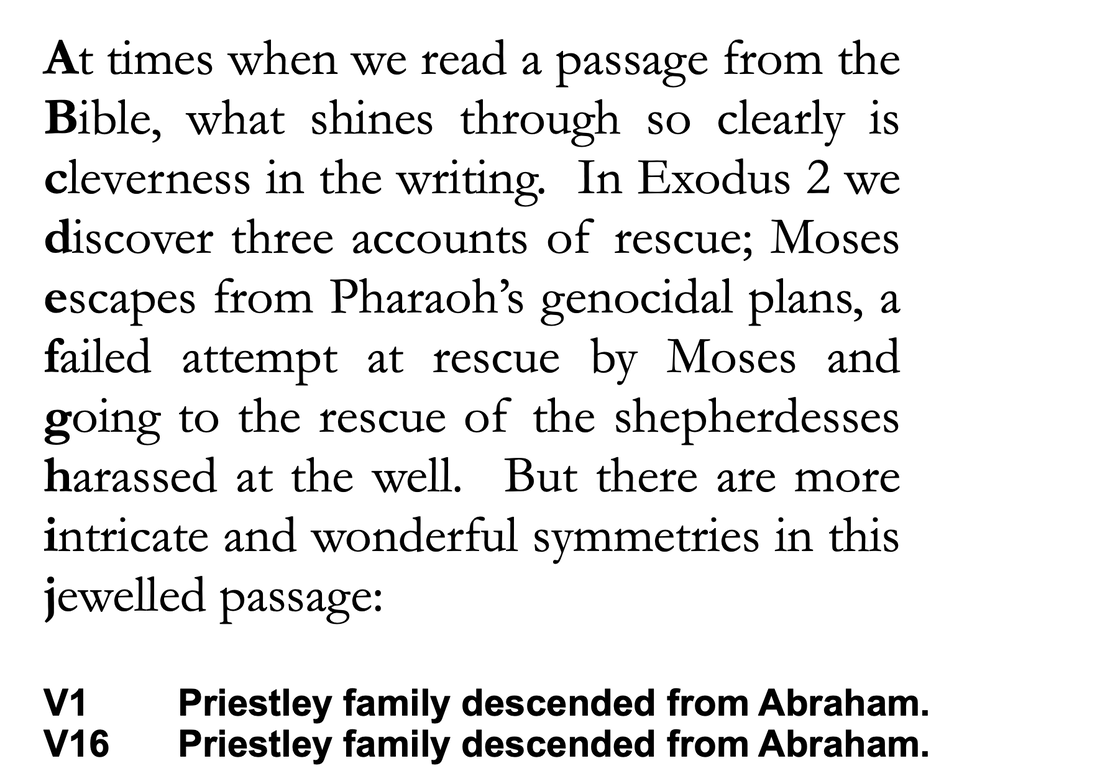
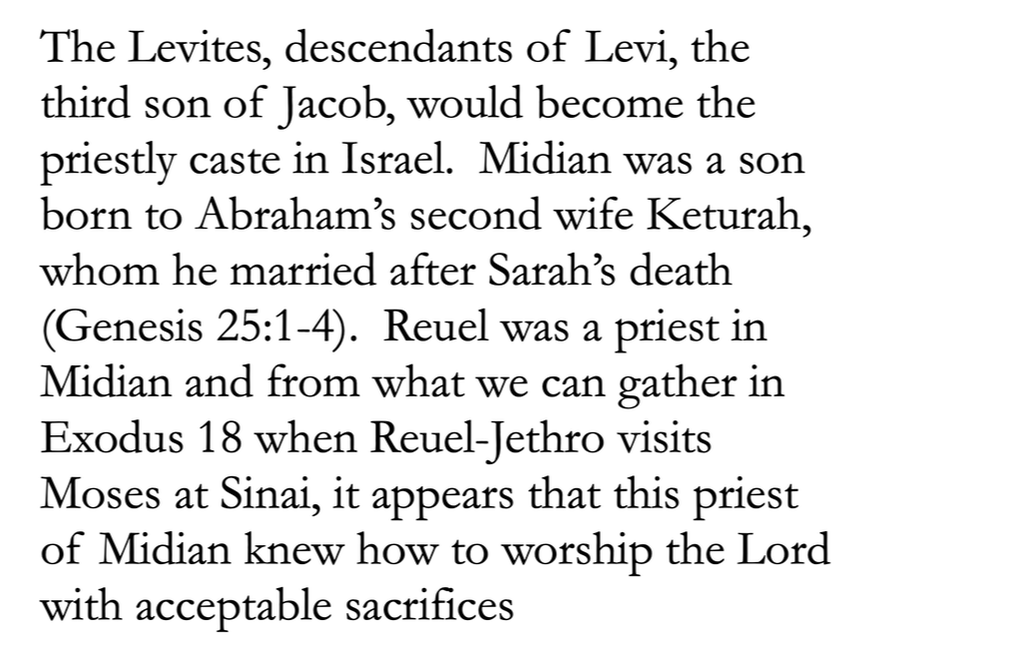
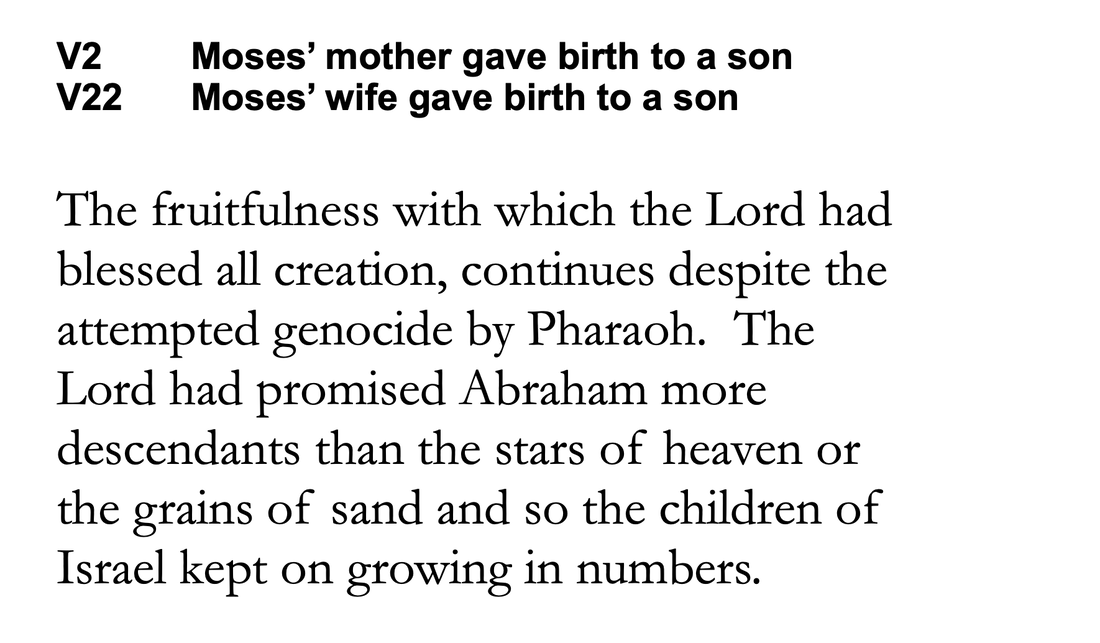

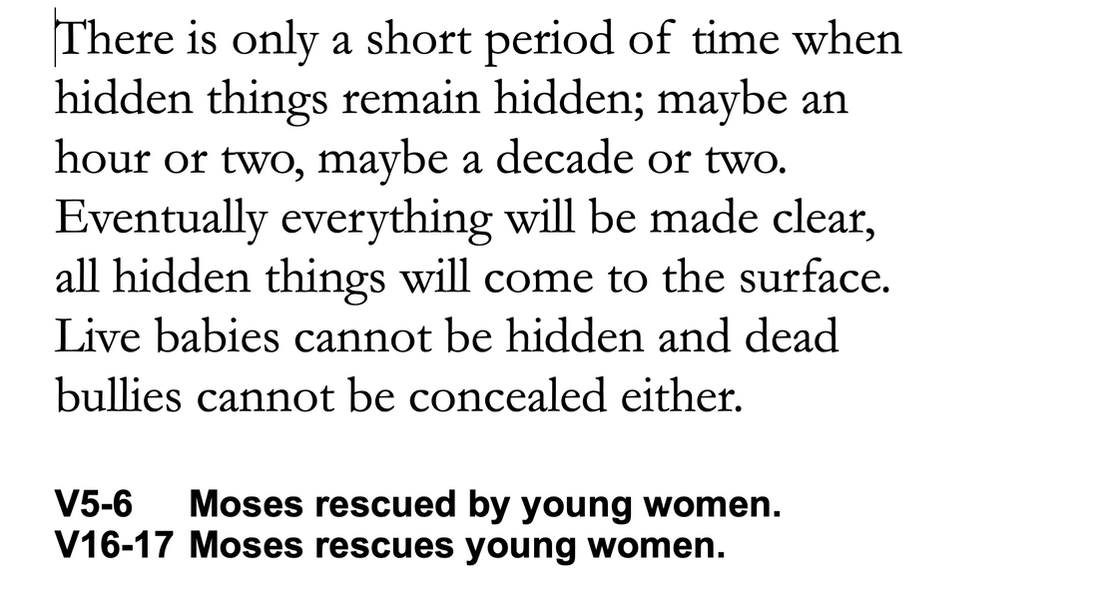
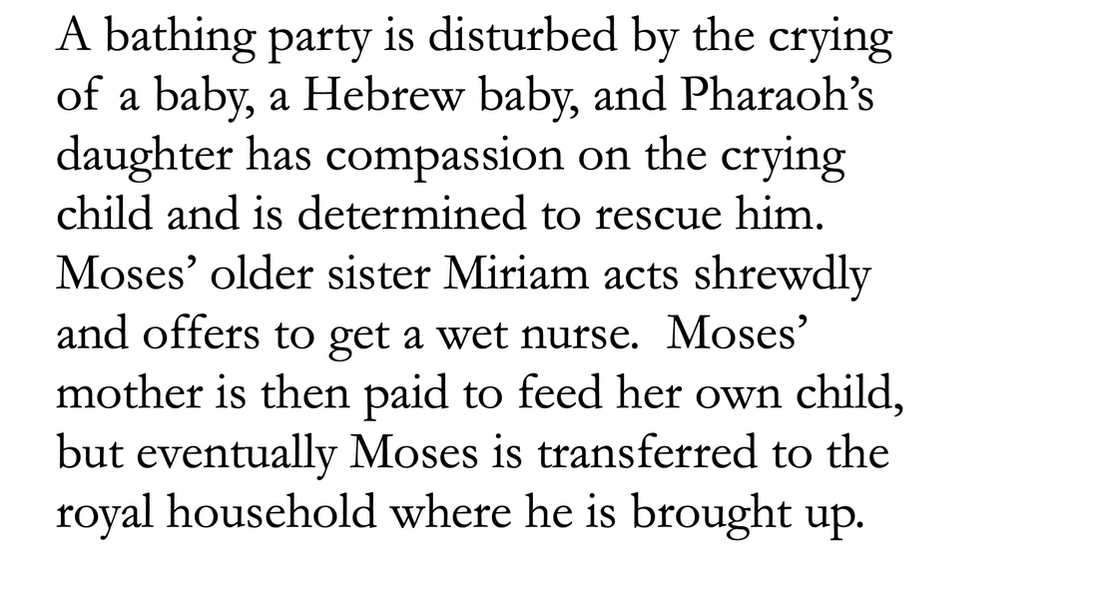
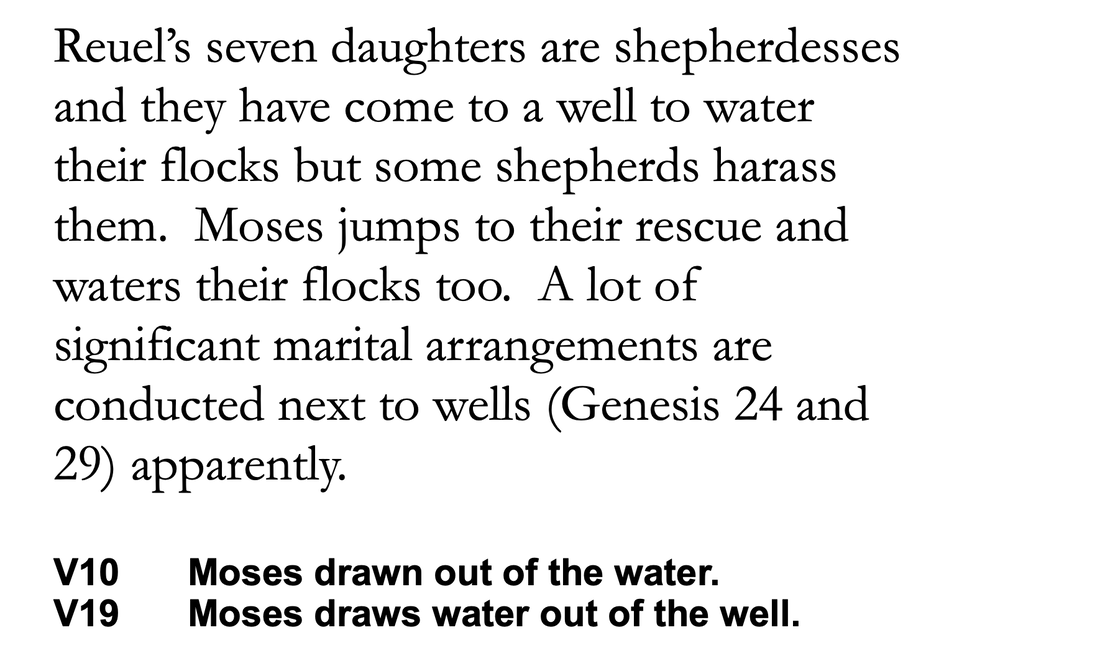
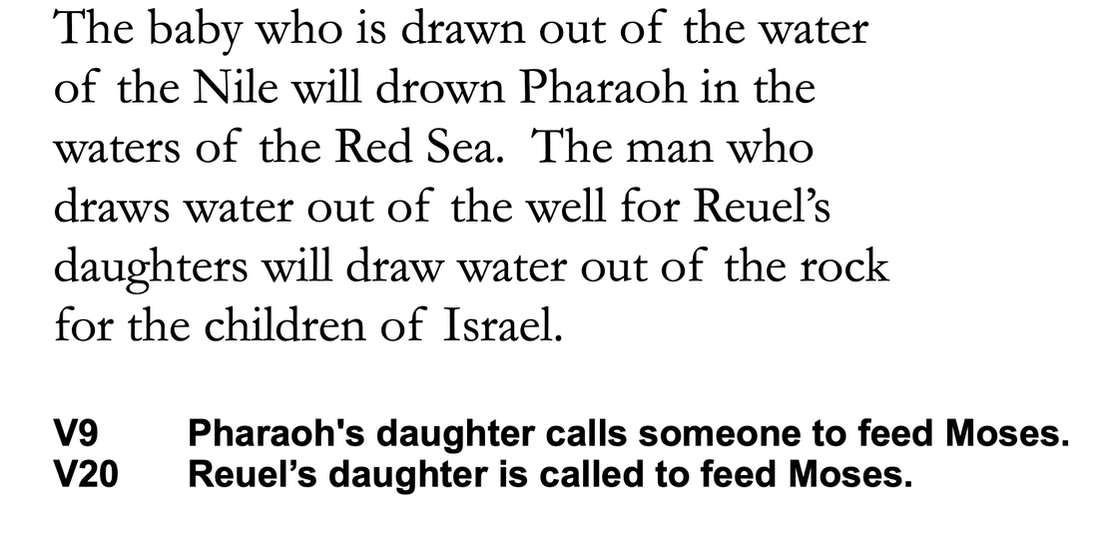
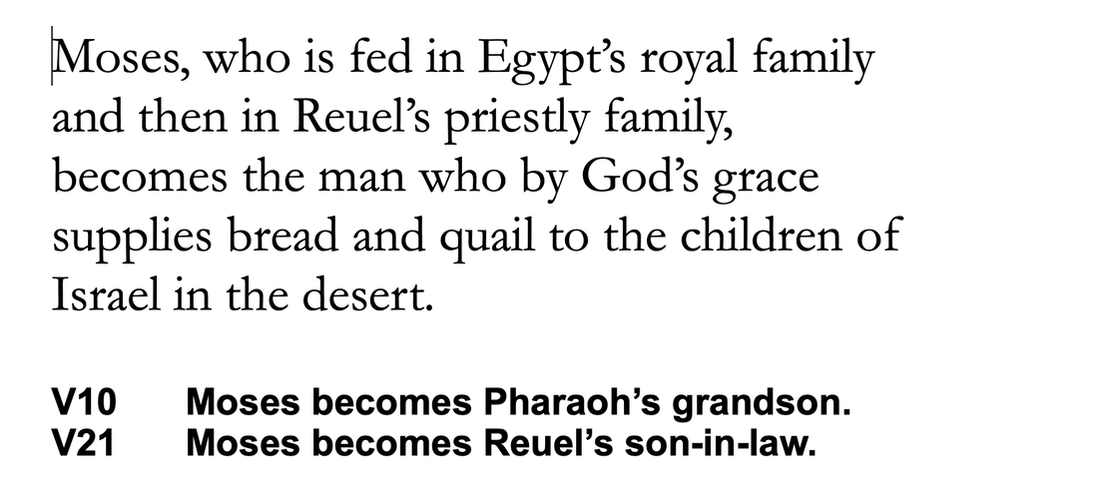
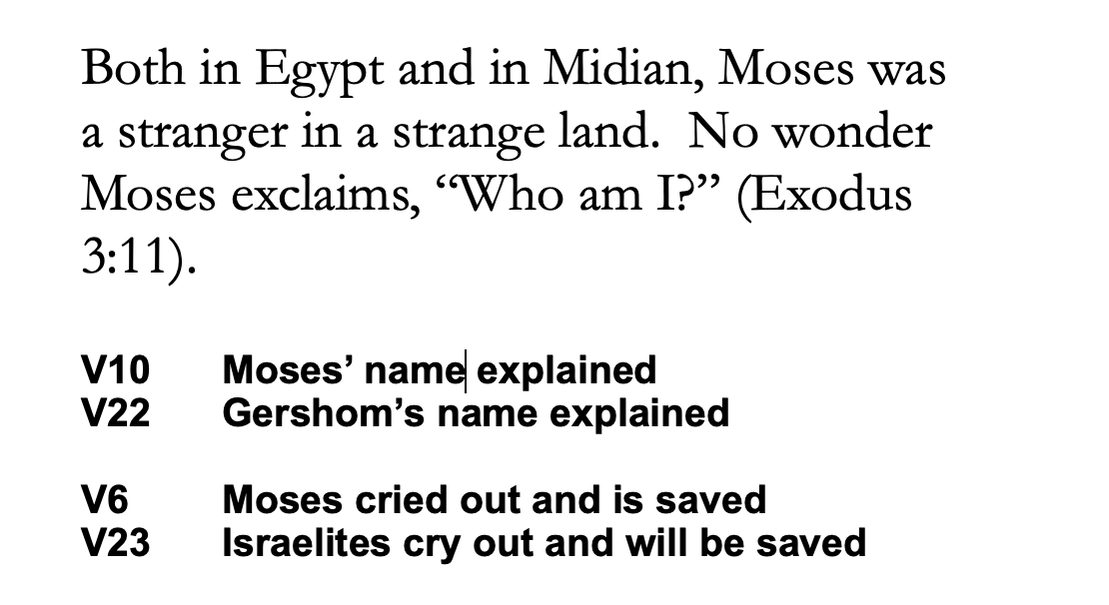
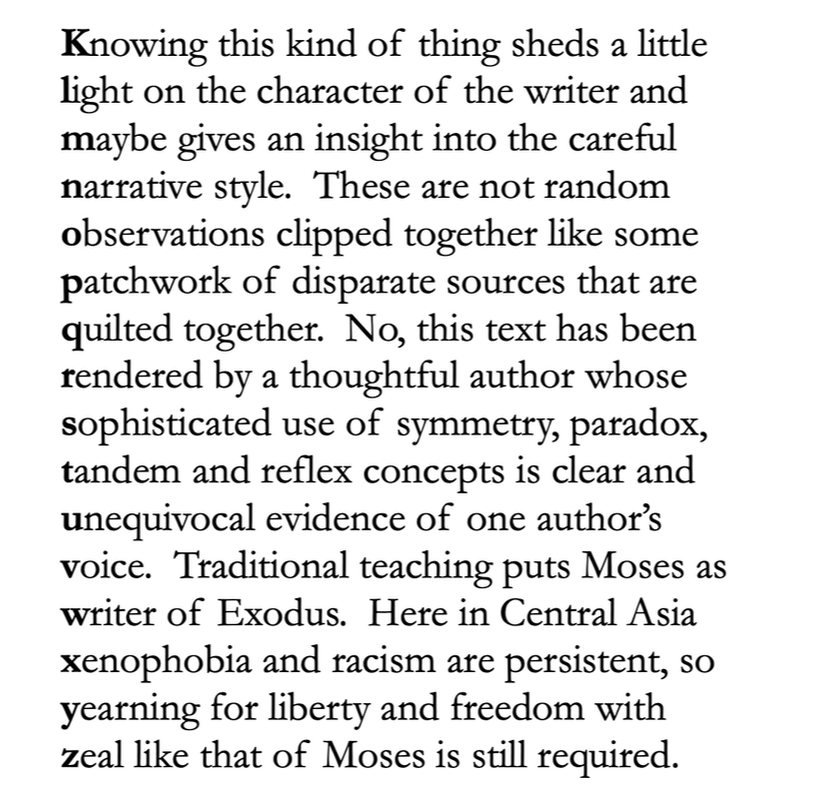
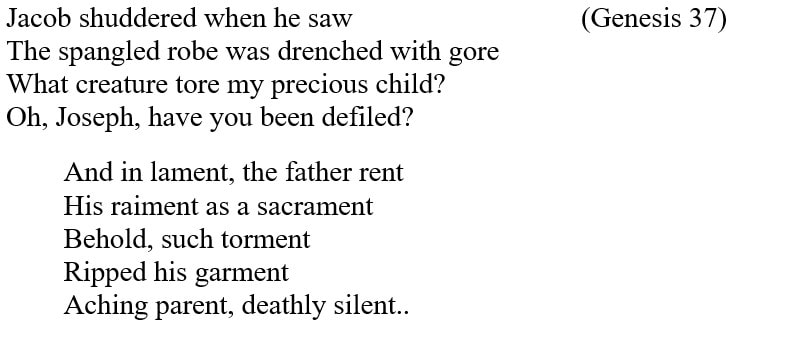
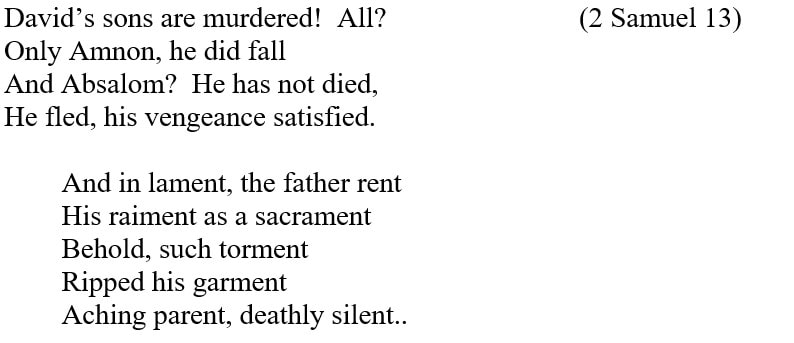
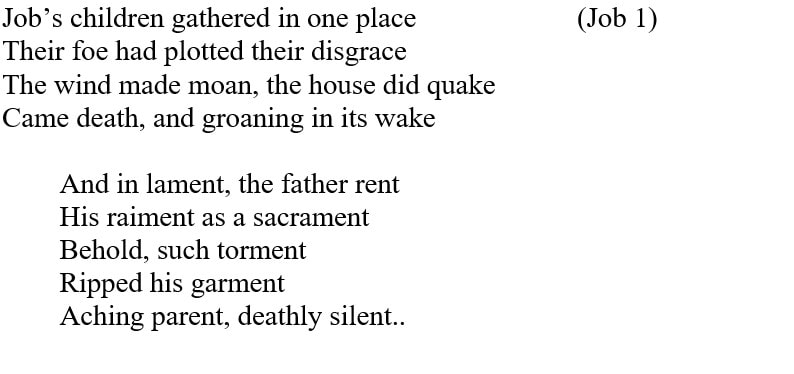
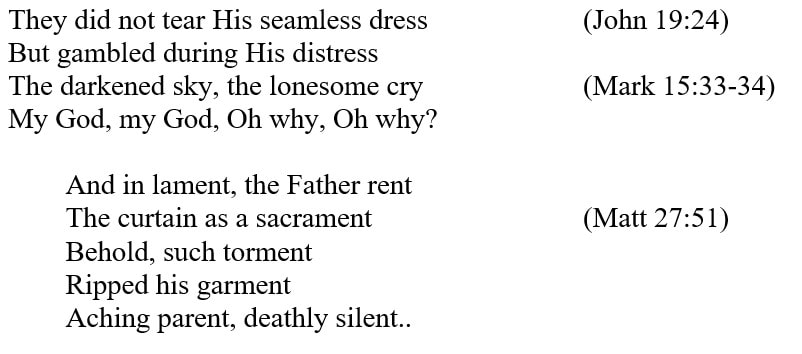
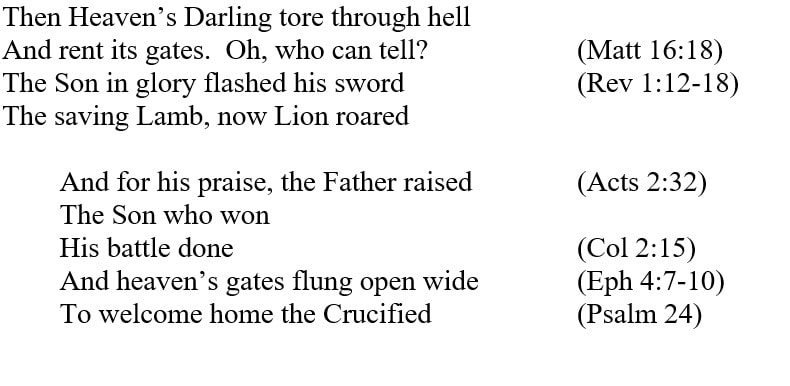
 RSS Feed
RSS Feed